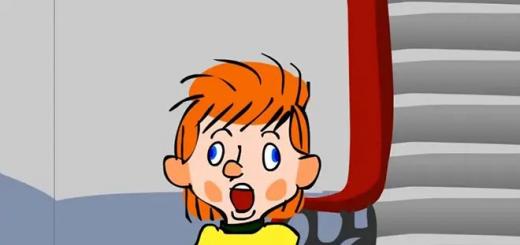Often there is talk in society about why a person needs to study mathematics. Indeed, many people, having received an education, often work in a specialty that is not related to complex calculations. Mathematics at first glance has nothing to do with their lives. However, in the vast majority of countries in the world, for some reason, this science is invariably included in the curriculum of schools and universities. Why is this discipline so important?
We study mathematics - we study
This science is based on the natural laws of the surrounding reality. It excludes free interpretations and lengthy reasoning. Its core is order and clear logic. In fact, all processes operating in nature are built on the same principles. Mathematics reflects them like a mirror, at the same time being a tool for their knowledge.
There are cases when great discoveries literally left the sheet of paper. Thanks to mathematical calculations, even before the active exploration of space by man, scientists managed to draw up a fairly accurate picture and describe the processes that operate in it. And the main weapon in their hands was the usual mathematical formulas.
But what is mathematics for the common man?
Of course, the importance of the science of numbers in the life of society is difficult to overestimate. Without it, technological progress and the development of civilization are impossible. But why does an ordinary person need this item?
The great Russian scientist and thinker M. V. Lomonosov emphasized the importance of mathematics for the formation of personality and called for studying it because "... it puts the mind in order." You can't really say! Indeed, this science has a serious impact on the development of the intellect.
It improves analytical, critical, deductive, predictive abilities. Trains the brain to store and process large amounts of information. Its influence on the intellectual potential of a person is expressed in the development of the following personal qualities and skills:
The ability to analyze difficult life situations, make informed decisions in the face of difficult choices;
the ability to generalize and the skill of considering a particular event as an integral element of a general order;
the ability to find patterns;
the ability to reason and think logically, accurately formulate thoughts and draw logical conclusions.
You can improve your math skills at any age. However, such arithmetic exercises are of particular importance for children. Perhaps there is no other similar subject that has such a strong influence on the development of the child's intellectual abilities! Working with numbers will help with young years begin to think rationally and bring up the sharpness of the mind.
Organization and orderliness
Qualities developed by mathematical methods form the frame of human thinking. This leads to the organization of all thoughts into a single system of interrelated concepts about the surrounding world. Being the embodiment of natural order, mathematics also eliminates chaos in the human head.
Such a person can no longer be misled. She has no confusion in reasoning and uncertainty in behavior. She is not influenced by various kinds of schemers and will not let herself be dragged into a dubious operation or a financial pyramid. The logical organization of the mind allows a person to build his own life, career and material well-being.
Do humanities need mathematics?
Of course! It will certainly help in the development of the humanities. Since there, too, the skills of systemic thinking, logic, and the ability to formulate large-scale theories will be required without fail.
There are many excellent lawyers who, in addition to their specialized education, also received physical and mathematical education. This taught them to come up with non-trivial solutions, build complex lines of defense in court, and carry out systematic work with legislative framework.
Benefits of math skills in business
Today, many people come to the decision to start their own business. Someone is not satisfied with his current job, and he seeks to change it to something more interesting. Someone immediately decides to find an independent source of income, counting on gaining personal independence and receiving large incomes.
In any case, the organization of an individual enterprise will require the skills of analysis, forecasting and constant calculations. A businessman must master them, since not all powers can be delegated to hired personnel. And even if you collect a large staff, you still need the ability to structurally organize their work.
Mathematical methods of analysis, modeling and forecasting are indispensable here. Without them, it is impossible to achieve success, even doing small business, not to mention the creation of a large, reputable company. And the point here is not so much in the knowledge of special calculation methods (if you wish, you can always master them), but in a certain organization of thinking.
Own business is a strictly ordered system, the construction of which presupposes that its creator has the skills of structured thinking, the ability to generalize and find relationships. Exact sciences develop all these skills. Even statistics show that the greatest success, as a rule, is achieved by businessmen who graduate from mathematical and technical universities.
Mathematical thinking
Among psychologists, the concept of a mathematical mindset is often used as one of the ways to organize a person's mental activity. Yes, there are people who find it incredibly easy to comprehend the laws of arithmetic. However, this does not mean that the lot of all the rest is to realize their potential exclusively in the humanitarian sphere.
Do not think that by nature you are not given to master mathematical formulas and solve problems for calculation. The human mind is universal. It has the potential for any intellectual activity. There is no complete lack of ability in mathematics. It just takes a little more effort to manifest it than it takes some mathematical genius.
Of course, one cannot deny that each person has certain innate inclinations in mastering the sciences. In addition, professional specialization requires a large amount of knowledge in a narrow direction. For example, it will be difficult to combine a good chemist, physicist, lawyer, historian and literary critic in one person. This is only available to a few.
However, absolutely everyone can master the base of basic mathematical skills! And it won't get in the way of your life. On the contrary, new abilities will give a strong impetus to the development of personality and will serve as the key to achieving success in any area of activity.
Pacheva Alina
Project Manager:
Filkova Larisa Nikolaevna
Institution:
MKOU "Secondary School No. 27" Nalchik
In this research work in mathematics on the topic "Mathematics in ordinary life" the author studies the branches of human activity and professions where mathematics occurs, proves its necessity, and also finds out whether a person needs mathematics in ordinary, Everyday life?
In the presented research project in mathematics on the topic "Mathematics in ordinary everyday life" a study of the statements of great people about mathematics is carried out, the need for mathematics is proved not only in certain professions, but also in everyday (ordinary) life.
In the research work on mathematics "Mathematics in everyday life", the student plans to acquaint schoolchildren with the results of her research in order to develop interest in this subject, expand knowledge of mathematics and horizons.
Introduction
1. Mathematics in everyday life.
2. Mathematics in professions.
3. Why is mathematics needed in different areas of life?
3.1. Why is math needed?
3.2. Why does a child need math?
3.3. Why do humanities need mathematics?
4. Sayings of great people about mathematics.
Conclusion
Introduction
One day I had a question What is mathematics for?, Why do we learn various equations and theorems? We use mathematics only in the store when buying products. Why do we study mathematics? kindergarten? » And I tried to find out the importance of this subject.
I believe that my topic of research work in mathematics "Mathematics in ordinary life" is relevant .
The purpose of the research work: study where mathematics occurs in life and prove its necessity. Find out if a person needs mathematics in everyday life?
Tasks:
- To study the types of activities (professions) where a person cannot do without mathematics;
- Answer the questions: Why is math important in everyday life? and what can mathematics give each individual?;
- Study the sayings of great people about mathematics.
Hypothesis: mathematics in our life is necessary not only in certain professions, but also in everyday (ordinary) life.
Mathematics in everyday life and work
Maths- a set of sciences that study quantities, quantitative relationships, as well as spatial forms.
Many famous mathematicians say that the main thing in mathematics is to teach a person to think, sometimes putting very difficult tasks. « Mathematics develops logical thinking, the ability to independently solve problems, the ability to quickly grasp the essence and find the most suitable and simple approach to a life task.' adults tell us. Mathematics is closely related to our daily life.
Mathematics is found in our lives at almost every step and it is not so gray and boring, but colorful and cheerful...
Thanks to mathematics, we solve many problems in everyday life. Few thought that mathematics surrounds us from the first days of life. Any child, even who did not study arithmetic, came across numbers. He will find out his weight, height in the clinic, he also knows his age. And more than once a day he will face various tasks of counting toys in the room or sweets to treat his friends.
Mathematics and daily routine. For example, our daily routine is a routine, nothing more than determining the time and planning it throughout the day with the help of simple mathematical calculations.
Lessons at school is also the distribution of time between the study different items and rest during breaks. After school, we need to have time to have lunch, go to extra classes, do homework, have dinner, rest and go to bed in order to have a good sleep and start a new day with renewed vigor and in a good mood. And this is how we keep track of time by the clock all day long and learn how to distribute it correctly so as not to be late and not to run earlier than necessary.
At school, we study mathematics from the first grade until graduation, then we are taught mathematics at the university. Every year the course expands to become more in-depth, more and more subjects are related to mathematics.
AT high school we have algebra and geometry in place of arithmetic. Our horizons are expanding. We can understand, see things that previously seemed unclear to us. Mathematical sciences develop our thinking, teach us to think.
With age we solve more and more problems: How many products do you need to buy to last for a week? How much do you need to earn in order to save up for a summer cottage and travel abroad? How much paint do you need to buy to paint the walls in the bedroom?
Without knowledge of mathematics modern life would be impossible. We would not have good houses, because builders must be able to measure, count and construct. Our clothes would be very rough, as they need to be well tailored, and for this, everything must be accurately measured. There would be no railroads, no ships, no planes, no big industry.
There would be no radio, television, cinema, telephone and thousands of other things that are part of our civilization. The use of mathematics, measurement " how much?», « how long? are a vital part of the world we live in.
Mathematics has given rise to computing calculating machines. Computer technology has gone from simple abacus, arithmometers, slide rulers to microcalculators and computers. Now computers are used in all industries National economy: in statistics, trade, automated management of plants and factories. Machines not only count, they can translate from one language to another, they can compose music, play chess.
Home repairs. If we are going to make repairs at home, then we definitely cannot do without mathematics. We need to do a lot of calculations. The accuracy of which will determine whether we will have even walls and ceilings, as well as whether we have enough wallpaper to paste over the room and tiles to put on the floor in the bathroom.
In this way , I can say that we need mathematics everywhere, and there is no such area of life where we could do without it.
Mathematics in professions
There is not a single profession in the world where mathematics is not found. And the opinion of the students that mathematics will not be useful to us is wrong. In any profession, a person needs mathematics. Even a person whose work is not related to mathematics needs it.
After all, you need to know mathematics so that you are not cheated by giving you a salary or pension. Mathematics also teaches to solve any problem with several solutions. Thanks to this, a person develops his extraordinary thinking.
You can bring a lot good examples professions where mathematics is needed:
- Accountant
- Engineer
- Seller, programmer and many others….
Accountant.
In the profession of an accountant, mathematics is simply necessary. An accountant calculates salaries, benefits, vacation pay, taxes, insurance premiums, etc.
Salesman.
In the profession of a seller, mathematics is needed in order to count the money, the products and goods received, the number of remaining products and goods, etc.
Despite the fact that your future profession does not imply a connection with mathematical formulas and calculations, no one knows what you will do in the future. For example, go to become an entrepreneur and start your own business.
Such a change of work will require you to master new skills in organizing and running a business, including accounting, and without mathematical methods of forecasting, modeling, analysis and calculations, there is no way to achieve success.
Why is mathematics needed in different areas of life?
Why is math needed?
What does it give a person, what abilities and skills does it develop?
First of all, this fundamental science develops our mental abilities - analysis, deduction, the ability to predict. Mathematical knowledge improves abstract thinking, increases its speed, teaches to abstract, concentrate and trains memory.
If we specify what mathematics gives us, then the result of acquaintance with it can be represented by the following list of skills:
- communication;
- analysis difficult situations making optimal decisions, regardless of the complexity of the situation;
- search and finding patterns;
- development of logic, reasoning, generalization, competent formulation of thoughts and logical conclusions;
- speed of decision making;
- planning and keeping in mind a complex step-by-step sequence;
- logical construction of complex operations and their storage in memory.
The listed skills are acquired not only as a result of solving problems of various sections of mathematics (algebra, geometry, trigonometry, probability theory, statistics, etc.), but also in the process of using such mathematical and logical methods as puzzles, exact sciences or Mind games, which load your brains and "force" to look for non-standard solutions and analyze.
Why does a child need math?
Mathematics is essential for the development of children. In addition to developing the child's mind, it lays the foundation rational thinking and intellectual development even at the stage of schooling.Mathematics, forming logic, trains our mind, which allows us to compare various concepts, sensibly analyze them and comprehend. A person with "porridge in the head" is more prone to delusions, both in thoughts and in reasoning. In other words, knowledge of mathematics will not allow you to be deceived, as millions of people who entrusted their deposits to financial pyramids were deceived.
Mathematics is not just formulas and calculations, it is logic and order that follow from their rules and functions! Mathematical knowledge allows a person to reason correctly, form his thoughts, keep complex sequences in his head and build relationships between them.
Why do humanities need mathematics?
Many humanities think that they do not need mathematics, forgetting that mathematical thinking will help in any profession that is not related to the exact sciences. You don't need to go far, remember the lawyers: they build their defense in court like chess players, coming up with cunning and extraordinary solutions, using the legal framework and a logical order of actions.
It makes no sense to specifically study an in-depth course in mathematics. To obtain the necessary basic knowledge, school and primary university education is sufficient, in which general education subjects are mandatory for everyone, both for techies and for the humanities. The study of multidirectional subjects harmoniously complements human knowledge, which will be useful not only in future profession but also in everyday life.
Sayings of great people about mathematics
- Mathematics is the language in which the book of nature is written. (G. Galileo)
- Mathematics is the queen of sciences, arithmetic is the queen of mathematics. (C.F. Gauss)
- Anyone who has been involved in mathematics since childhood develops attention, trains his brain, his will, cultivates perseverance and perseverance in achieving the goal. (A. Markushevich)
- "Numbers govern the world," said the Pythagoreans. But numbers make it possible for a person to control the world, and the whole course of the development of science and technology of our day convinces us of this. (A. Dorodnitsyn)
- Sooner or later every correct mathematical idea finds application in this or that business. (A.N. Krylov)
- If you want to participate in the big life, fill your head with math while you can. It will then be of great help to you in all your work. (M.I. Kalinin)
- Have you not noticed that a mathematician is skilled in all the sciences in nature? (Plato)
- It would be good if this knowledge were demanded by the state itself and if persons holding the highest public positions were taught to do mathematics and necessary cases contact her. (Plato)
- From the earliest antiquity, the mathematical sciences have attracted special attention; at present, they have received even more interest in terms of their influence on art and industry. (P.L. Chebyshev)
- Mathematics is the best and even the only introduction to the study of nature. (D.I. Pisarev)
- Astronomy (as a science) began to exist since it was combined with mathematics. (A.I. Herzen)
- Flying is math. (V. Chkalov)
- Inspiration is needed in geometry no less than in poetry. (A.S. Pushkin)
- Geometry is full of adventure, because behind every task lies an adventure of thought. To solve a problem is to experience an adventure. (V. Arizvolov)
- Mathematics has its own beauty, as does painting and poetry. (N.E. Zhukovsky)
- Chemistry - right hand physics, mathematics are her eyes. (M.V. Lomonosov)
- Mathematics already then needs to be taught, that it puts the mind in order. (M.V. Lomonosov)
- I love mathematics not only because it has applications in technology, but also because it is beautiful. (R. Peter)
- Everything that was previously in the sciences: hydraulics, aerometry, optics and others is obscure, doubtful and unreliable, mathematics has made clear, true and obvious. (M.V. Lomonosov)
- Aspiring to the closest study of chemistry must be versed in mathematics. (M.V. Lomonosov)
- A physicist without mathematics is blind. (M.V. Lomonosov)
- A mathematician who is not in some way a poet will never be a real mathematician. (K. Weierstrass)
- Mathematics is the language that all exact sciences speak. (N.I. Lobachevsky)
- Only with algebra does rigorous mathematical teaching begin. (N.I. Lobachevsky)
- No matter how well the machine works, it can solve all the tasks required of it, but it will never come up with one. (A. Einstein)
- It is mathematics that gives the most reliable rules: whoever follows them is not dangerous to deceive the senses. (L. Euler)
- Numbers (numbers) do not rule the world, but they show how the world is ruled. (I. Goethe)
- A close, deep study of nature is the source of the most fruitful discoveries of mathematics. "(J. Fourier)
- ... It would have been easier to stop the Sun, it would have been easier to move the Earth than to reduce the sum of the angles in the triangle, reduce the parallels to convergence and move the perpendiculars to the straight line to diverge. (V.F. Kagan)
- Counting and calculations are the basis of order in the head. (Pestalozzi)
- If you want to learn how to swim, then boldly enter the water, and if you want to learn how to solve problems, then solve them. (D. Poya)
- To digest knowledge, one must absorb it with gusto. (A. Franz)
- The subject of mathematics is so serious that no opportunity should be missed to make it more entertaining. (B. Pascal)
Conclusion
To date, we do not know areas of human life where mathematics is not needed. Not a single new discovery can do without it, not a single invention works, not a single enterprise and state functions, therefore, the range of everything where mathematics is needed is quite wide.
When we start studying this discipline at school, we do not know if we will make a discovery in physics, computer science, astronomy or another science. Or maybe we will be an engineer or an architect, an aircraft designer or a pharmacist, i.e. a specialist in the profession where mathematics will be needed for us.
It is possible that we will be a housewife, a makeup artist or a famous fashion designer who needs to make drawings for costume patterns. Or fate will test us in the profession of a programmer, lawyer, captain of an ocean vessel or leader of a geological expedition, since all these are areas where mathematics is simply a must.
While working on the project, we were convinced that everyone should know and study this greatest of all sciences, without which one cannot imagine one's life, since mathematics is a kind of ticket, without which it is impossible to go on a journey. It develops logical thinking, determination, imagination, the ability to find a way out of any situation.
Mathematics makes you think, helps mankind to discover and use the laws of nature, and at all times has been a powerful engine of science and technology.
I was convinced that mathematics is simply necessary in life, everyday life and professions. In this regard, I decided to acquaint as many students as possible with the results of my research in order to develop interest in this subject, expand knowledge of mathematics and broaden their horizons in general.
Hypothesis put forward that mathematics is necessary in our life not only in certain professions, but also in everyday life - was confirmed.
Bibliography
1. Aksenova M.D. - Encyclopedia for children. T. 11. Mathematics / Chief ed. M.D. Aksenova - M. Avanta, 1998.
2. Glazer G.I. "History of Mathematics at School"
3. Sergeev I.S. "Apply Math"
4. Spivak A.V. Math holiday. 4.1 - M .: Bureau Quantum, 2000 (Supplement to the journal "Quantum", No. 2/2000).
5. Shalaeva G.P. Everything about everything. Popular encyclopedia for children. Moscow "Slovo" 1997, 1999.
Mathematics in human life
Have you ever heard such an expression: mathematics is a country without borders? This phrase about mathematics has a very good reason. Mathematics occupies a special place in human life. We are so close to it that we simply do not notice it.
But our life begins with mathematics. The child has just been born, and the first figures in his life are already being heard: height, weight. The kid grows up, cannot pronounce the word "mathematics", but is already doing it, solving small problems of counting toys, cubes. And parents do not forget about the tasks. When preparing food for a child, weighing him, they have to use mathematics. After all, you need to solve an elementary problem: how much food you need to cook for the baby, given its weight.
At school math problems there are many and their complexity grows every year. They do not just teach the child certain actions. Mathematical tasks develop thinking, logic, a set of skills: the ability to group objects, reveal patterns, determine relationships between phenomena, make decisions. Mathematics, solving mathematical problems develops the personality, makes it more purposeful, active, independent.
And after school, mathematics is very useful. While studying at the university, at work and at home, you need to constantly solve problems related to mathematics. What is the probability successful delivery exam? How much money do you need to earn to buy an apartment? What is the surface area of the walls of your house, and how much brick should you buy to insulate your house? How to calculate correctly so that a girl or a boy is born? And this is where math comes in. It follows a person everywhere, helps him solve practical problems, makes his life much more convenient.
The world and life itself is rapidly changing. It includes new technologies. Only mathematics and problem solving in the traditional sense do not change themselves. Mathematical laws have been verified and systematized, so a person can rely on it at important moments, solve any problem. Math won't let you down.
National action plan for 2012-2016 for the development of functional literacy of schoolchildrenpays special attention to such basic competencies as literacy in reading, mathematics, and science.
What is the purpose of mathematics education?
University preparation.
Preparation for the future profession.
Intellectual development.
Formation of the worldview.
Orientation in the environment.
Physical education of the brain.
Here are some motivations regarding the importance of mathematical education for the individual.
Mathematics is found and used in everyday life , therefore, certain mathematical skills are needed for every person. We have to count, for example, money in life. We constantly use, often without noticing it, knowledge about the quantities that characterize the extent, area, volume, time intervals, speeds, and much more. All this came to us in the lessons of arithmetic and geometry and came in handy for orientation in the world around us.
Mathematical knowledge and skills are necessary in almost all professions, first of all, of course, in those related to the natural sciences, technology and economics. But there is no doubt that the application of mathematical knowledge and mathematical thinking doctor, linguist, historian, and it is difficult to cut off this list, mathematical education is so important for professional activity in our time. Consequently,mathematics and mathematical education are needed to prepare for a future profession . This requires knowledge of algebra, mathematical analysis, probability theory and statistics.
Philosophical comprehension of the world, its general patterns and basic scientific concepts is also not possible without mathematics. And that's whymathematics is necessary for the formation of a worldview .
Mathematics should contribute to the development ethical principles human hostel. Its study is designed to educate in a person intellectual honesty, objectivity, the desire to comprehend the truth,it also brings up the ability to aesthetic perception of the world, the beauty of intellectual achievements .
“Mathematics already then needs to be taught, that it puts the mind in order,” - M.V. Lomonosov. Not only arms, legs, body require training, but alsothe human brain needs exercise . Solving problems, puzzles, math puzzles develops logical thinking, reaction speed. No wonder they say that mathematics is the gymnastics of the mind.
Mathematics teacher of KSU "Kokpekty secondary school" Germash E.A.
Ecology of life. How to stop failing deadlines and procrastinate, learn to make important decisions and love yourself with the help of mathematics?
How to stop failing deadlines and procrastinating, learn to make important decisions and love yourself with the help of mathematics? We learned the answer from Barbara Oakley, author of the recently published Russian book “Think Like a Mathematician” and the popular course on Coursera “Learning How to Learn”, Dr. technical sciences, consulting engineer and brain stem cell researcher.
If you're good at math, you're much harder to fool
I have been studying the features of human thinking for a long time. I am currently working on the book Mindshift: How Ordinary and Extraordinary People Have Transformed Their Lives Through Learning - And You Can Too. She is dedicated amazing stories about people who have changed their lives and careers through new approaches to learning.
There are many ways to overcome the fear of natural and exact sciences. Outstanding scientists and brilliant minds, as a rule, early master effective techniques training, because they begin to train almost from infancy. In fact, anyone at any age can master these learning techniques. If I hadn't studied before foreign language, I would not have thought that there are specially structured practices.
When you go to the gym, you use the machines to develop your muscles. You don't think you can build great abs by sitting on the sidewalk every day. The same principle can be applied to mathematics. It helps develop invisible thinking muscles that can be useful in unexpected areas. For example, if I need to hire a store manager or develop an online course, I would rather prefer a candidate with a developed analytical mind. The world is changing and the ability to deal with technical and mathematical challenges is becoming more and more important.
Knowledge natural sciences warns people against "magical thinking"
Mathematics and other sciences can help you make important decisions that will affect your life; they will also help you cope with everyday difficulties. Knowledge in the field of mathematics and natural sciences warns people against "magical thinking". When it comes to salary, sometimes it seems to me that money will just appear out of thin air, and I will get everything I want without any effort. But that doesn't happen. Money also will not magically appear in the state budget, although, of course, the state often makes us believe otherwise. A natural science background just makes us smarter and allows us to observe things from a distance. For example, we all know how important good ecology is, and we understand that we should fight to make the world clean and green. However, some environmental initiatives, such as e-cars, are actually harmful to environment. Simply put, people who do not have any mathematical and scientific knowledge are much easier to fool, because they do not know how to look at things skeptically.
Mathematicians love to teach abstract mathematics, which seems out of touch with reality, but in fact helps to master skills that can be easily transferred to different areas of professional activity. Studying mathematics in one area, such as accounting, is not effective because it limits your flexibility of thinking and prevents you from applying new knowledge and skills in a different context. It's like refusing to learn a foreign language - then you artificially permanently limit your thinking within the framework of one language. If you are afraid of equations and formulas and don't know how to apply your imagination to them, try to think of them as poetry.
Equations are just a set of coded concepts; in them, as in poetry, there is a deep meaning. Einstein was able to describe the photon with the help of imagination, not with the help of mathematics.
It is known that in mathematics he was not so strong and often turned to other mathematicians for help in order to continue his research. On the other hand, he was not interested in fantasies: he imagined himself as a flying photon and thought about how another photon would perceive him. The imagination of people is much more developed than they think. If you don't think this is for you, then consider this: if you are imaginative enough to love and raise your child, then you are imaginative enough to create a wonderful new world.
There are many books that will help you understand mathematics. My favorites are "Calculus Made Easy" by Sylvanus Thompson, "The World According to Wavelets: The Story of a Mathematical Technique in the Making" by Barbara Burke Hubbard and a three-volume edition of Richard Feynman's Physics Lectures. All these works help to get acquainted with mathematics from different angles and explain how it relates to reality.
Your success has nothing to do with the degree of your genius
I decided to get an engineering degree only at the age of 26. This caused me much hatred and much suffering in my first year; I was encouraged only by rare insights. It took about a year and a half before I felt that I “could do it”. Before that, I studied Russian, received a scholarship from the non-arms training service for reserve officers and a bachelor's degree in Slavic languages and literature. I had a chance to become an expert in the Signal Corps, but I hated math and was afraid of it.
If you, too, are afraid of math and science, you should know that your brain is constantly doing complex calculations, you just don't know it. Thanks to this, you can catch the ball and drive around the road holes in your car. We solve equations and perform complex calculations unconsciously and are unaware that we already know the solution, because we all have math and science abilities. We think that mathematics is more complicated than humanitarian sciences, only because it is encoded in formulas and abstract concepts.
I believe that there are thousands of "correct" ways to teach children, so I don't gravitate towards any particular school or system. We emphasize too often that children should approach learning with passion, when in fact the process of learning itself should arouse passion in them. Education should cultivate creativity, curiosity and the desire for discovery in students. However, creativity must be backed up by solid knowledge in a particular subject. If you don't have an extensive set of facts in your mind, you're unlikely to be able to make a creative discovery. Although children study in the same school for many years, their achievements do not even out, because people's success is highly dependent on their social environment and biological predisposition. But in reality, perseverance means much more than intelligence. Many "middlings" have gone much further than very gifted people.
Talented people they also face many challenges: in childhood they are offended by classmates, they begin to suppress their abilities and look for problems where there really are none. Talented people are much more likely to procrastinate, because in their youth this approach was effective and, as adults, they simply cannot readjust. Students constantly compete with more gifted classmates and try to catch up with them, as a result they severely limit themselves in the time that can be spent on mastering the material, and fall further behind. You need to accept yourself and your characteristics. If you feel that you have reached a dead end, it is better to ask competent people for advice. Before that, try to solve the problem yourself, then you will better perceive the explanations of another person. At the university, I was angry with my teachers for not understanding anything, although I only had to take a few steps on my own.
I am sure that stupid people exist! I know this for sure, because I myself have been stupid from time to time. Everyone is different: some students learn useful teaching techniques and still choose not to use them. This doesn't mean they're stupid, but I pity them because they often deceive themselves about what they're really capable of. Nobel Laureate Richard Feynman liked to talk about his IQ of 125 to prove that success isn't just down to innate genius. He achieved success precisely with the help of persistent studies in physics and mathematics for many years.
Rewiring your brain is not as difficult as it seems.
We think in two different modes: focused and diffuse. There is a hypothesis that this is due to the fact that vertebrates had to solve two most important tasks at the same time: to monitor the movement of enemies (diffused mode) and to look for food (concentrated mode). If each of the hemispheres is aimed at a certain type of perception, the chances of survival increase.
In humans, the left hemisphere is associated with focused attention and specializes in logical thinking; the right is responsible for processing emotions, scattered attention and social communication. It is impossible to get a broad idea about the structure of the world without the participation of the right hemisphere. For the successful study of the sciences and arts, an alternation of two types of thinking is necessary. All the insights known in the history of science, as if whispered by someone from above, are connected precisely with the inclusion of a diffuse mode of thinking after a long period of concentrated work. The notion that some people have a dominant right hemisphere and others have a left hemisphere is erroneous. The brain is very complex. We deceive ourselves when we try to make his job easier. wonderful book Michael Anderson's "After Phrenology" (In the footsteps of phrenology) very intelligibly explains to the reader why a modular approach to understanding the work of the brain is problematic.
I can't believe that students spend about 16 years in educational institutions before getting a bachelor's degree, but they do not have a single effective teaching course. On the other hand, a course on effective teaching in traditional educational system will look something like this: three weeks will be spent on the history of education, another three on various pedagogical theories, and another three on a course of lectures on how young children learn. Maybe only in the last one or two weeks students will be able to get some practical skills. Since most professors are unfamiliar with neuroscience, they won't be able to talk about vital things like focused and diffuse thinking patterns or brain pain centers that cause us to procrastinate. I think today's students are very lucky to have access to books like Think Like a Mathematician and courses like Learning How to Learn on Coursera. The information that is given there will be useful for any person who is learning something. It would be great if all these approaches were naturally integrated into school and university education. Fortunately, this is already starting to happen.
All insights, as if whispered by someone from above, are associated with the inclusion of a diffuse mode of thinking after a long period of concentrated work.
Changing university approaches to teaching is like moving a graveyard to another place. We cannot expect this from the dead themselves. I am sure that universities can only change as a result of pressure from outside. This is why the disruptive technology of mass online learning is so important. This also applies to my course "Learning How to Learn", which partly duplicates the content of the book "Think Like a Mathematician". It is the most popular course in the world, with over a million students enrolled in the last year alone. And for good reason: it contains powerful, useful, and scientifically proven ideas. So now all the changes depend on the people themselves.
Many students are still unaware that marginal notes are more effective than simple underlining in a textbook, and simple rereading cannot replace retrieving data from memory. Constantly rereading notes or a textbook gives the illusion of competence, although if you close the book or notebook, you will realize that nothing is left in your mind. Instead, check yourself regularly and mentally review what you have learned.
It is important to clarify that children do not necessarily learn “wrong” in school. Another thing is that some teaching methods are more effective than others, and specialized courses help you get to know them. All people are different, the main thing is to independently integrate these approaches into your own life. The first and most important step is to simply stop procrastinating to reduce your stress levels, increase learning efficiency, and free up plenty of time for fun and relaxation. We procrastinate when we feel uncomfortable doing something. If you are afraid of mathematics, then the very thought of it is painful for you.
If you need to start doing math, the pain centers in your brain are activated. It is important to clarify here that after you start exercising, the pain disappears. H
change should be introduced gradually. If procrastination is your main problem, try the Pomodoro Technique for yourself: set a timer for 25 minutes and focus on your work. This will help you focus your attention for a short period of time. Can't check at this time social networks talking on the phone and looking for something on the internet.
The secret is that 25 minutes is a short amount of time, so you can take comfort in the fact that it will all be over soon and you can get some rest. It is useful to support this method with lists of key tasks for the day (5–10 points) and for the week (up to 20 points) in order to track your progress and not miss important things. Don't forget to "eat the frogs in the morning", that is, do the most important and unpleasant job at the start of the day. A concept associated with the study of mathematics and natural sciences is called the "setting effect". It is associated with moments when the initial idea or thought prevents the search for a better idea or solution.
Very often this initial impulse leads to wrong result. When you struggle with a task for a long time, it is this barrier in your thinking that prevents you from finding the right solution. I myself regularly use the methods described in the book - for example, I constantly use the “principle of the tomato”. Also, when I read non-fiction, I constantly look away and check what I can remember. I think that these methods can also help in the study of complex abstract concepts, such as philosophy. published
Many people often ask why do you need math?. Often the very fact that this discipline is included in the mandatory curriculum of universities and schools, puts people at a loss. This bewilderment is expressed in the following: Like, why should I, a person whose future (or current) profession will not be connected with making calculations and applying mathematical methods, know mathematics?
How can this be useful to me in life? Thus, a large number of people do not see any sense for themselves in mastering this science, even on an elementary basis. But I'm sure the math, more precisely mathematical thinking skills needed by everyone and everyone. In this article I will explain why I am so sure of this. First, I will tell you why this discipline, how scientific knowledge and the method is needed in general and where is its place in the system of all natural sciences and how it is applied in practice.
If you already know this, but still wonder why you personally need to study this discipline, then go straight to the second part of the article. There I will talk about what personal qualities mathematics helps to develop, and what you will lose if you refuse to master this subject, at least for basic level.
The place of mathematics in the system of sciences
Mathematics is a fundamental science, whose methods are actively used in many natural disciplines, such as physics, chemistry and even biology. By itself, this area of knowledge operates with abstract relationships and relationships, that is, with such entities that in themselves are not something material.
But nevertheless, as soon as mathematics enters the field of any science about the world, it is immediately embodied in the description, modeling and prediction of quite concrete and real natural processes. Here she finds flesh and blood, coming out from under the cover of idealized formulas and calculations cut off from life.
Mathematics is a tool for understanding the world
It is an exact science that does not tolerate arbitrariness in interpretation and various speculations. This is the embodiment of order and rigid logic. It helps to understand the world around us, to learn more about its laws, since these laws are subject to the same order that reigns in mathematics!
We can successfully translate the language spoken by nature into the language of mathematics and understand the structure of the relationships of a phenomenon. And, after we formalize these connections, we can build models, predict the future states of the phenomena that these models describe, only on paper or inside the memory of computers!
Einstein, in response to a question where his laboratory was located, smiled and pointed to a pencil and paper sheet.
His formulas of the theory of relativity have become an important step towards understanding the universe in which we live. And this happened before man began to explore space and only then experimentally confirmed the correctness of the equations of the great scientist!
Application in modeling and forecasting
Thanks to the application of mathematics, we do not need to conduct costly and life-threatening experiments before realizing any complex project, for example, in space exploration. We can calculate orbital parameters in advance spacecraft launched from earth to deliver astronauts to orbital station. Mathematical calculations will make it possible not to risk people's lives, but to estimate in advance all the parameters necessary for launching a rocket, ensuring a safe flight.
Of course, a model is a model because it cannot take into account all possible variables, which is why disasters happen, but it still provides fairly reliable forecasts.
You can see the embodiment of mathematical calculation everywhere: in the car you drive, in the computer or portable device from which you are currently reading this article. All buildings, buildings do not collapse under their own weight due to the fact that all the data necessary for the construction were calculated in advance using formulas.
Medicine and healthcare also exist thanks to mathematics, which is used, firstly, in the design of medical devices, and secondly, in the analysis of data on the effectiveness of a particular treatment.
Even the weather forecast is not complete without the use of mathematical models.
In short, thanks to mathematics, we have all the technologies available to us today, do not expose our lives to senseless danger, build cities, explore space and develop culture! Without her, the world would be very different.
Why do people need mathematics? What skills does she develop?
So, we found out that mathematics is one of the most important achievements of culture and civilization. Without it, the development of technology and the knowledge of nature would be unthinkable things! Well, you say, let's say this exact science is really extremely important for humanity as a whole, but why do I need it personally? What will she give me?
Mathematics develops mental abilities
Mathematics allows you to develop some important mental qualities, which I wrote about in an article about the development of intelligence (). These are analytical, deductive (ability to generalize), critical, prognostic (ability to predict, think several steps ahead) abilities.
Also, this discipline improves the possibilities of abstract thinking (after all, this is an abstract science), the ability to concentrate, trains memory and enhances the speed of thinking. That's how much you get! But at the same time, you or your children can lose a lot if you do not pay due attention to this subject.
Speaking in more detail and operating with specific skills, then mathematics will help a person develop the following intellectual abilities
- The ability to generalize. Consider a particular event as a manifestation of a general order. The ability to find the role of the particular in the general.
- Ability to analyze difficult life situations, the ability to make the right decision of problems and be determined in the face of difficult choices.
- Ability to find patterns.
- Ability to think and reason logically, competently and clearly formulate thoughts, draw correct logical conclusions.
- Ability to think quickly and make decisions.
- Planning ahead skill, the ability to keep several consecutive steps in mind.
- Conceptual and abstract thinking skills: the ability to consistently and logically build complex concepts or operations and keep them in mind.
An important point: I have already received a number of questions from readers, so I want to clarify something here right away. The above qualities develop not only solving problems from different areas mathematics: trigonometry, probability theory, etc. You do not have to find dusty school textbooks in these subjects at all if you want to improve these abilities.
Here I am talking not only about mathematics as a specific science, but rather about all those areas of knowledge where the mathematical method is applied and precision, order and logic prevail. So for the development of some qualities of intelligence, studying the exact sciences, solving logic puzzles, and even some are suitable.
Take what is closer and more interesting to you, there is no need to force yourself to study boring textbooks, the main thing is that the head works, so that the tasks require you to search for non-trivial solutions and the accuracy of the analysis. I write about it right away so that it will be clear what I'm talking about.
Mathematics is essential for the development of a child!
Mathematics is especially important for the development of a child! It sets the standards for correct, rational thinking for the rest of your life! Gives a huge boost to mental development.
I don’t even know what other school subject is capable of so raising the mental level of a growing individual and serving as such a good help for intellectual development later, already in adulthood. I do not mean mathematics only as a subject, algebra or arithmetic, I am talking about the application of mathematical methods in general, including physics, geometry, computer science, etc.
Mathematics Organizes, Organizes, and Optimizes Your Thinking
I will begin this paragraph with the famous saying of Lomonosov, the great scientist who achieved success both in the natural sciences and in the field of the humanities - the rarest case of a universal mind. He said: “Mathematics only then needs to be taught, that it puts the mind in order.”
Mathematics trains, such mental qualities that form the framework and skeleton of all your thinking! This is, first of all, logical ability. This is all that organizes all your thoughts into a coherent system of concepts and ideas and the connections between them.
Mathematics itself is the epitome of natural order, and it is not surprising that it orders your mind. And without this notorious logic in the head, a person is not able to draw correct logical conclusions, compare concepts of various kinds, he loses the ability for sound analysis and reasoning. What can lead to the phenomenon of "porridge in the head", confusion in thoughts and reasoning, indistinctness of the argument.
It is easy to mislead such a person, which actually usually happens, since he is not able to identify a clear violation of logic in the statements of all sorts of schemers and charlatans (Already the second paid experience with financial pyramids in our country suggests that a huge part of people believe that they don't need math. Knowledge of mathematics does not allow you to deceive!
So it's not only calculations and formulas, it's primarily logic and order! It is a set of rules and functions that make your thinking consistent and logical. This is reflected in your ability to reason, formulate thoughts, hold complex concepts in your head and build intricate relationships.
Why do humanities need mathematics?
Which will certainly come in handy for you, even if you are going to succeed on the basis of some humanitarian discipline, since logic, systemic thinking skills and the ability to formulate complex theories are very necessary there too. Without this, it will not become science, but verbiage.
I have heard of brilliant lawyers who, in addition to legal education received, in addition, physical and mathematical. This helped them, like good chess players, build complex combinations of defense options in court, or invent clever ways to interact with the legislative framework and come up with all sorts of ingenious and non-trivial solutions.
Of course, it is not at all necessary to receive a specialized specialized education in mathematics, even, in my opinion, redundant if you are not going to work in this area. But to master this discipline at a basic level school education and the initial courses of the university, I think everyone should and is capable.
You should not think that this is not given to you by nature, that your vocation is the humanities and you are not able to teach exact subjects. When someone says that he humanitarian mindset and, therefore, he cannot, in principle, count, read formulas and solve problems, no matter how much he wants to, then know that this is such an elegant attempt to justify the fact of the lack of development mathematical ability. Not their absence! But only the fact that these skills, for some reason, have not received proper development.
The human mind is a universal thing designed to solve a variety of problems. Of course, this statement has its limits: everyone, due to the peculiarities of their innate and acquired properties of thinking, has certain inclinations to master different sciences. In addition, specialization most often requires knowledge of one thing: it is difficult to be an excellent mathematician, chemist, lawyer, teacher in one (not all of us are Lomonosovs). There will always be something to choose from.
But everyone can master the basic skills of mathematical thinking! For some, it will simply be more difficult, for others it will be easier. But this is for everyone. And as I said, this is necessary for balanced development of your mind. From what you are interested in, for example, literature or psychology, it does not follow that you do not need mathematics and you are simply not capable of mastering it somehow by nature!
One does not exclude the other, but, on the contrary, harmoniously complements. "Humanitarian mentality" in the context of the impossibility of mastering the exact sciences is just one big nonsense and an attempt to justify the reluctance to master those skills that are given with more difficulty than others.
Why is mathematics important in life and work?
Math is useful in business. But maybe the profession that you consider as your future calling will not be related to calculations, formulas, computer science or analytics. Or you don't use it in your current job.
But still, this does not mean that it will always be so. Perhaps you want to change your profession. Or you get so bored with hired work that you decide to start your own business (and this happens quite often). The organization of an independent enterprise always requires calculations, forecasting and analysis. You, as the head of a new business, will need to have the appropriate skills, not everything is possible to delegate to hired employees, their work in any case needs to be controlled.
Without support in the form of mathematical methods of forecasting, modeling and analysis (at least at a primitive level, depending on what kind of business you have), it is difficult to achieve success in organizing your own business. Based on personal statistics, I can say that, as a rule, graduates of technical and mathematical universities achieve the greatest success in business.
It is not only a matter of knowing some special calculation methods, because it is never too late to master this if necessary. The key is in a certain organization of the mind. Business is a highly ordered system, the construction of which requires certain intellectual skills, structured thinking, the ability to generalize and derive relationships from its creator. The study of the exact sciences, as you know, develops these skills.
Conclusion
Mathematics and other exact sciences are very important both for the development of mankind as a whole and for the intellectual improvement of a particular individual. Certainly balanced. mental development personality implies the development of not only exact subjects, but also the humanities. Reading quality literature, for example, is also essential if you want to develop.
But, this alone is not enough. I would like to supplement the wording of the well-known statement: “if you want to become smart, you need to read a lot”, adding to this: “- and doing mathematics”. Otherwise, the effect of just reading books will be like a body without a skeleton or a building without a frame. It's hard for one without the other.
That is why many humanists, no matter how well they understand their own subject area, suffer from confusion of thinking and lack of sober judgment, and many avid mathematicians and techies become isolated in the world of abstract formulas and calculations, losing touch with the real world.
The golden rule is everything is good in moderation, the destiny of a harmoniously developed mind, universality at the most basic level! All together and books and mathematics! This is not a sermon for the glory of amateurism, no, in your specialization you must be a professional and a narrow specialist, an expert in your field. But as for your basic erudition and knowledge, there should be a little bit of everything.
I believe that the idea of school education and teaching in the primary courses of universities meets this principle of universality (only an idea, I don’t presume to discuss how this is implemented in practice). I would have an extremely negative attitude towards strengthening the specialization of primary and secondary education, considering that the growing individual should be given as much as possible from different areas, and when he gets it, let him choose what is closer to him!










